How Safe Is Costa Rica?
Costa Rica has become one of the most popular expat and digital nomad destinations in Latin America, known for its natural beauty, relaxed lifestyle,...

7 min read
Have you ever wondered about the financial muscle behind BRICS currencies? Picture five towering giants, each representing Brazil, Russia, India, China and South Africa. Their might isn't just in their size but also lies deep within - in their wallets.
Their collective clout can give a good run to any established economic powerhouse. And if you're asking yourself, "So what?", let me tell you this - understanding BRICS currencies is like holding a crystal ball for global finance's future.
We'll delve into these economies' heartbeats: potential standard currency plans among BRICS nations and even an intriguing prospect of gold or commodity-backed alternatives that could shake up existing monetary systems.
A hint? You may soon see the United Arab Emirates join the party! But hang on... Hold tight; there's plenty more to come!
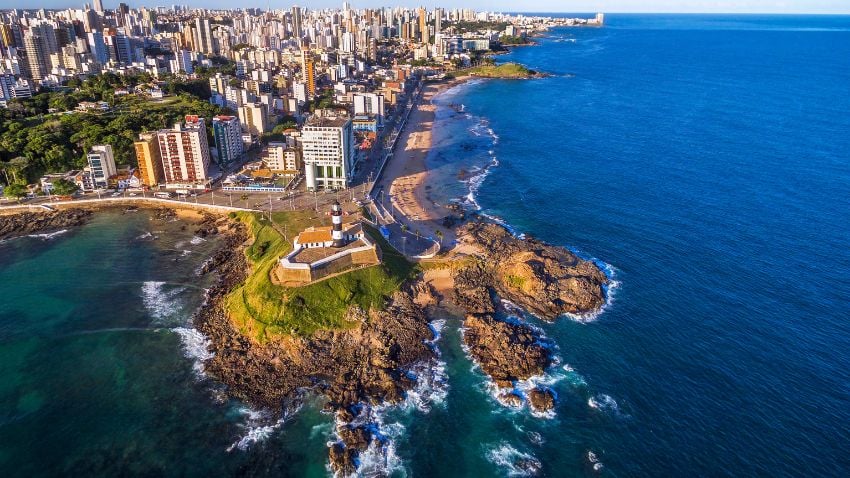
Salvador, Bahia, Brazil
When you hear the acronym BRICS, which nations spring to mind? If your answer is spot on, Brazil, Russia, India, China and South Africa. These powerhouses command a combined area of 39 million square kilometres. That's a staggering 26.7% of the Earth's landmass.
Now, let’s talk about population. The BRICS countries are home to over 3 billion people - around 41% of all folks worldwide. Impressive numbers indeed.
Digging deeper into these figures uncovers even more surprises about their economic prowess. Together, they account for $28 trillion USD (yes, with a 'T') or roughly one-fourth (26.6%) of the gross world product.
Beyond sheer size and population, we see remarkable buying power too – around $56 trillion USD worth, according to purchasing power parity calculations – representing almost one-third (32%) of global purchasing ability.
We've looked at GDPs, but what about currencies? Each country has its own unique currency – The Real in Brazil, the Ruble in Russia, the Rupee in India, the Renminbi/Yuan in China, and the Rand in South Africa. But how do these play out when it comes to international trade?
You see, the BRICS nations aren't just looking inward. They're keen to strengthen their economic ties with other countries, too. This includes developing a payment system independent of Western influence and discussing common BRICS currencies.
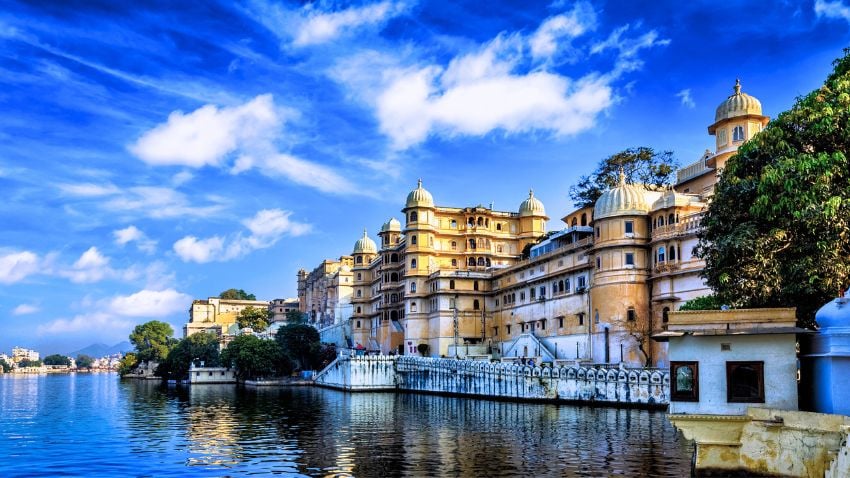
City Palace. Udaipur, India
As we contemplate the continually changing worldwide monetary scenery, one observable pattern is the extension of BRICS countries with their vigorous development and amplified collaboration. These countries have made waves in international economics with their robust growth and increased cooperation.
But now there's more to discuss: The rise of BRICS. This refers to potential new members who could join this influential bloc - adding even more strength to its economic might.
A key player that could potentially make up part of the "+" in "BRICS+" is Saudi Arabia. As one of the world's leading oil producers with strong ties to both East and West, it significantly influences global trade dynamics. Including them within the fold would likely boost trading volumes among member states while strengthening overall geopolitical positioning.
Their inclusion isn't without hurdles; economic diversification away from petroleum dependency remains crucial for long-term stability – something all current BRICS members are actively pursuing themselves.
In contrast stands another contender – the country I formerly called home before moving to Panama, the United Arab Emirates (UAE). Thanks to its strategic location, it is known for its oil reserves and as a hub connecting Europe, Asia, and Africa.
Furthermore, the UAE has been taking strides towards developing a diversified economy powered by sectors like finance, tourism, and technology alongside traditional energy resources, making them an appealing addition to any emerging market coalition such as this one.
We cannot ignore how attractive their business-friendly environment is, which attracts foreign investment, helping stimulate further domestic growth while enhancing connections internationally.
These are but two potential additions that could add further economic might and geopolitical leverage to the BRICS+ group. Other contenders include countries such as Argentina, Indonesia, and Turkey, each with their own unique strengths that they can bring to the table – from vast natural resources through robust consumer markets, all contributing towards a more diverse global financial system.
This could be a game-changer in the world of international monetary policy. It might spur more teamwork among developing economies and give Western-centric norms a run for their money.
|
Key Takeaway: Each potential addition brings unique strengths, from diversified economies to geopolitical leverage. This is not just about reshaping international monetary policy; it's a new take on global financial power dynamics. |
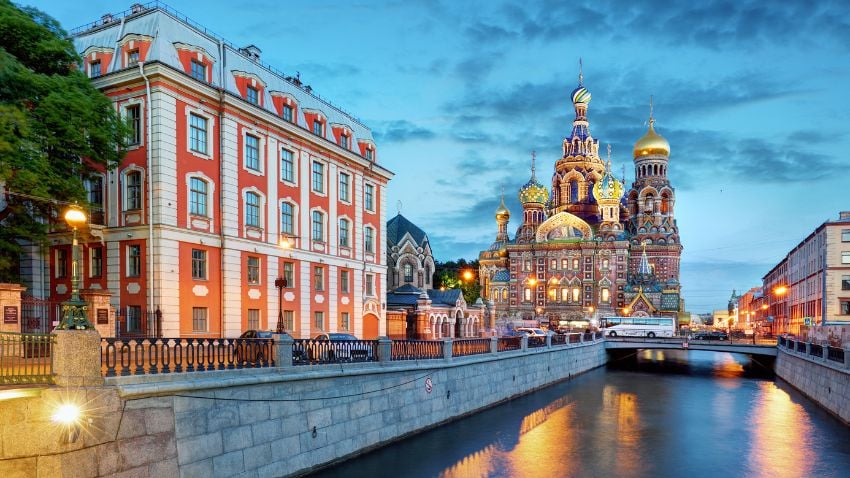
St. Petersburg, Russia
For years, the prospect of a common currency among BRICS nations (Brazil, Russia, India, China and South Africa) has been mooted. Such an economic game-changer would undoubtedly shake up global financial dynamics.
A shared currency could reduce trade imbalances between these countries while enhancing their combined clout on international monetary matters. But it's not as simple as just deciding to use one money for all.
Central banks play crucial roles in managing national currencies. They regulate the money supply to maintain stability and stimulate growth when needed. So what happens when we're talking about creating a common BRICS currency?
In this scenario, each country's central bank would need to work closely with the others – forming some sort of 'common central bank'. This entity would manage the proposed unified reserve currency within parameters agreed upon by member states.
This new body could draw inspiration from Europe’s fiscal union, where independent nations share a single currency - the Euro managed by the European Central Bank (ECB). However, establishing something similar amongst diverse economies like those in the BRICs bloc is certainly no easy feat.
To make any form of shared legal tender viable, there needs to be significant macroeconomic convergence amongst participating countries as per the European Commission's guidelines on joining the Euro. This essentially means that economies must be somewhat in sync for a shared currency to work effectively.
Connecting these bonds is no easy feat. It demands careful policy coordination around key aspects like inflation and public debt. But with their diverse fiscal landscapes, this becomes quite a tough job for the central banks of BRICS nations.
|
Key Takeaway: Creating a common currency for BRICS nations could significantly reshape global finance, but it's no simple task. Central banks from each country must form a unified entity to manage this shared money supply effectively. However, the economic diversity of these countries makes achieving necessary macroeconomic convergence challenging. |

Guiyang, China
Imagine a world where the BRICS nations are not just emerging economies but global financial game-changers. They could potentially shake up the international monetary system by introducing a gold-backed currency.
A gold-backed currency amongst these nations isn't an implausible concept. After all, central banks across the globe still hold significant amounts of this precious metal in their official FX reserves. The thought of BRICS nations taking such a step might be surprising or even laughable to some people. But let's delve into why this idea is practical and advantageous.
Fixing currencies to gold would result in more consistent exchange rates, as the movements of gold prices are usually less extreme than those for fiat money, such as the US dollar or euro.
This kind of stability can make trade between countries smoother and less risky - no small benefit considering that these five countries represent over 40% of the world's population. In addition, it would significantly reduce reliance on USD-based transactions, which dominate global forex markets currently.
Moving towards using an asset like gold rather than relying solely on national currencies has its own advantages, too, especially given how fiscal union has proved elusive for these diverse economies so far. It may seem odd now – akin perhaps to suddenly deciding you'd rather ride your bicycle backward instead of forwards – yet once you get used to it (and realize you're getting much better views), it starts making sense.
In fact, there have been recent discussions about this among BRICS leaders. Russian President Vladimir Putin has noted the irreversible process of de-dollarization and suggested exploring alternatives for strengthening economic ties within the bloc.
The benefits extend beyond just stabilizing exchange rates, too. Gold reserves can act as a buffer against trade imbalances, aiding in macroeconomic convergence - another topic on which BRICS nations have been keen to make progress.
It's like setting up your own squad in an international football league - tough, yes, but it could also be incredibly rewarding.
|
Key Takeaway: Imagine BRICS nations shaking up the global finance scene with a gold-backed currency. This might help stabilize exchange rates and reduce our dependence on USD transactions. At first glance, this concept may appear odd, but consider its benefits - it could bring more stability to trade relations and act as a safety net against trade imbalances. So, rather than dismissing it outright, let's take a moment to contemplate the potential of such an initiative. |
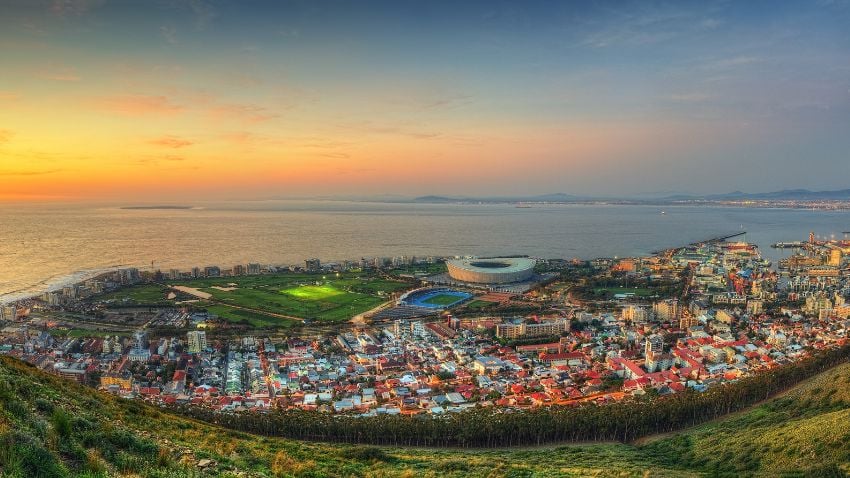
South Africa, Capetown
Imagine if the powerful nations of Brazil, Russia, India, China and South Africa (BRICS) decided to take a bold step towards monetary sovereignty. This isn't about merely issuing national currencies like the Real or Ruble but launching an entirely new form of currency backed by commodities.
An alternative reserve currency might seem outlandish. But remember that our current global financial system was once just an idea at the Bretton Woods Conference in 1944. A common commodity-backed currency among BRICS nations could similarly shake up existing economic ties and trade imbalances.
This is no small feat as it would need more than macroeconomic convergence or fiscal union; it's about creating a shared vision for their future. Just think about how this shift could disrupt dollar debt markets globally.
In such a scenario, each country's abundant resources become its strength. For instance, Brazil’s president Luiz Inacio Lula da Silva may see value in backing part of this proposed common currency with agricultural products like soybeans, while Russian President Vladimir Putin might advocate using natural gas reserves.
South African Reserve Bank Governor Lesetja Kganyago could propose leveraging his nation's vast gold mines as part of the backing mechanism – similar to what we discussed earlier regarding the potential for a gold-backed currency within BRICS."Why not use what you've got plenty?" he'd probably say with a smirk.
The idea of a commodity-backed BRICS currency could cause significant ripples in the global forex markets. It might also present fresh payment options for its major trading partners, including the United Arab Emirates and developing countries, looking to diversify away from dollar-centric trade.
Moreover, as the Brazilian foreign minister pointed out at one of the BRICS summit meetings, such an initiative can be seen as part of an irreversible process towards more international financial autonomy and less reliance on traditional powers like the International Monetary Fund or Federal Reserve.

Karelia, Russia
The power of BRICS currencies is undeniably transforming the global financial landscape. With their combined economic muscle, these nations are shaking up old norms and forging new paths.
You've discovered how a potential common currency could unify BRICS economies further, streamlining trade processes while giving more clout against traditional monetary systems. The gold-backed or commodity-backed options also stand out - offering stability in volatile times.
New kids on the block, like Saudi Arabia and the United Arab Emirates, might join this exclusive club, too. This means a greater influence for BRICS on global finance and trade dynamics.
Keep your eyes peeled because, with BRICS' evolving ambitions, we're all set to witness history in the making!
If you want the best intel from the expat world, including profitable offshore opportunities, little-known tax-saving strategies, and hard-won insights on immigration, passports, and Plan-B residencies, all delivered to your inbox every single week, then join our daily correspondence, EMS Pulse®. Currently enjoyed by over 84,000 expats and expat-hopefuls worldwide. Fill in the form below to join our newsletter free:

Written by Mikkel Thorup
Mikkel Thorup is the world’s most sought-after expat consultant. He focuses on helping high-net-worth private clients to legally mitigate tax liabilities, obtain a second residency and citizenship, and assemble a portfolio of foreign investments including international real estate, timber plantations, agricultural land and other hard-money tangible assets. Mikkel is the Founder and CEO at Expat Money®, a private consulting firm started in 2017. He hosts the popular weekly podcast, the Expat Money Show, and wrote the definitive #1-Best Selling book Expat Secrets - How To Pay Zero Taxes, Live Overseas And Make Giant Piles Of Money, and his second book: Expats Guide On Moving To Mexico.
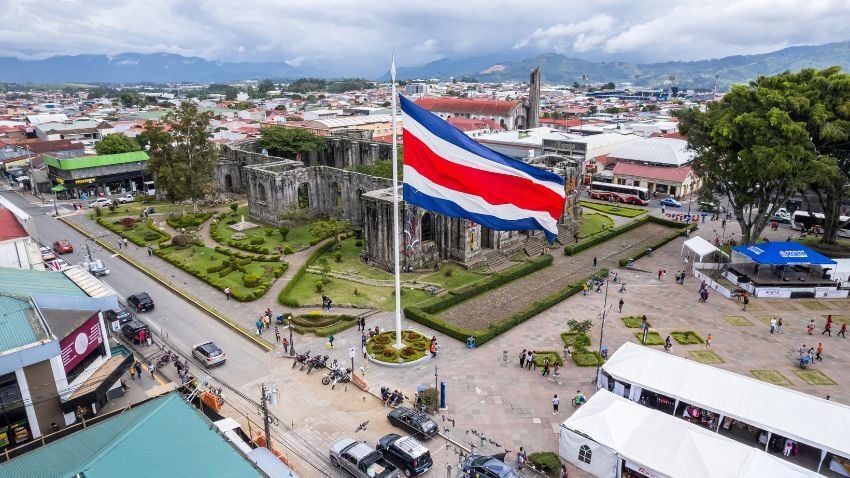
Costa Rica has become one of the most popular expat and digital nomad destinations in Latin America, known for its natural beauty, relaxed lifestyle,...

Mexico remains one of Latin America’s most compelling destinations, especially for North Americans. More than a million expats call it home, and tens...

South Korea is far more than K-pop and K-dramas. It is a country known for outstanding food, from bustling street markets to high-end dining, as well...